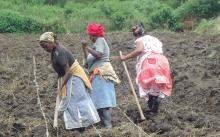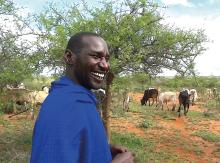Land Library
Welcome to the Land Portal Library. Explore our vast collection of open-access resources (over 74,000) including reports, journal articles, research papers, peer-reviewed publications, legal documents, videos and much more.
/ library resources
Showing items 1 through 9 of 15.Following the end of apartheid, South Africa’s government set itself ambitious goals with a planned land reform. However, there have since been barely any changes in the country’s agricultural structure, and the positive impacts that were hoped for on rural livelihoods have hardly materialised.
The year 2016 marks 15 years since the new wave land reforms became operational in Tanzania. Despite its ambitious goals – encouraging land registration and titling, and empowering women and other vulnerable groups – the results are disillusioning.
This report presents the results of a small scale household survey that was conducted in May
2015 to assess the extent to which rural Rwandan citizens are vulnerable or resilient to
environmental, market and land tenure risks and the level they understand the laws and rights
Rwanda has nearly 280,000 hectares of wetlands, almost 11% of the country’s total
area.1 These wetlands provide critical habitats for wildlife and biodiversity, maintain
important hydrologic processes that help to clean and protect ground and surface
Rwanda is developing at a remarkably rapid pace, and with that development has come a
multitude of corresponding changes to the orientation and use of land throughout the country.
In light of these changes, law n°18/2007 of 19/04/2007 relating to expropriation in the public
This policy brief aims to inform policy and current practices governing land expropriation in Rwanda drawing on recent research carried out by the LAND Project.
Liberia’s government seeks to put greater emphasis on integrated cash/food crop systems with broad-based farmer participation. However, shortcomings in regulations on land transactions could threaten livelihoods in what is already a vulnerable country.
After remarkable social and economic reconstruction since 1994, Rwanda aspires to become a middle income country by 2020 with a strong focus on inclusive growth. In this context the Government of Rwanda (GoR) has recognized the critical nature of land policy and agricultural growth.
The world today faces a wide range of critically important issues, whose resolution require inter- national collaboration of various stakeholders. Environmental conservation and conflict resolution are such examples.









